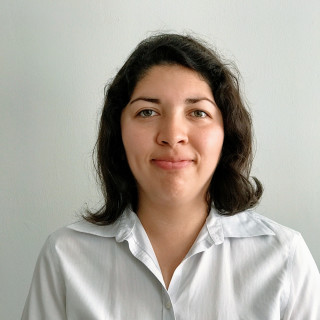There’s a world of difference between being a resident and being an attending. In my first year out of residency, I faced numerous unexpected challenges — challenges which spurred in me growth I hadn’t known was possible.
Below, I discuss the two main lessons I learned during this transitional time and how I came to grow into a competent and compassionate attending.
1) Learning to trust myself
Shortly after graduating from family medicine residency, I became an attending in an academic program and found myself sitting in a tiny room precepting residents in a same-day clinic in a city that was new to me. One day, a chronically ill patient was on our list. He had been recently discharged and had missed his post-hospitalization visit, but came in due to ongoing lower extremity swelling. A second-year resident saw the patient and confidently formulated a plan for ongoing outpatient management. After reviewing the patient’s records, seeing the patient with the resident, and discussing the case, I felt that the patient needed a more emergent evaluation and likely another inpatient stay. But I wasn’t sure I was correct — as a new attending, I was fresh to this space. I wondered if maybe there was something I was missing — this resident seemed so confident in his plan and it wasn’t all that long ago that I was a PGY-2 like him. I started to doubt myself: Could we do outpatient management as the resident had suggested? Perhaps my own training had evaded some key knowledge for how to manage this case the second-year resident’s way.
After a long discussion, we sent the patient to the ER. The resident still seemed unconvinced by my plan, but reluctantly agreed. On my way home, I sent a message to my trusted, former co-residents to recheck my assessment. They all agreed with my plan and provided me reassurance that sending this patient to the ER had been the best move. I spent the next few days revisiting this patient’s case and trying to gauge if my management plan truly was appropriate. I don’t think I had experienced this level of doubt since my first year of residency.
As it would turn out, that experience wasn’t the only one of its kind during my first year as an attending. For much of that time, I could feel tension in my shoulders and a wrinkle forming on my forehead. The complexity of the cases did not make a difference; each new case, no matter how straightforward, was loaded with questions and important points to impart. When I was a resident, I had seen enough cases to grow comfortable with clinical management. So, why was I so uncomfortable in this new attending role? Why was I perseverating, for example, on 5 mg versus 7.5 mg of Lisinopril?
As time passed, I came up with a key reason: I’d always treated attendings as all-knowing authority figures, and now that I was one, I wasn’t sure I was measuring up. When I was a resident, I didn’t really appreciate the work of an attending, especially one in a residency program. I didn’t often see them struggle to answer questions — they just seemed to have an innate and natural understanding of the medical dilemmas at hand. But as I grew into my attending self, I realized that attendings were working through problems much the way residents were — they were just doing it in a faster, less visible manner. The learning they were doing was done on the fly, as they had patients to see and there wasn’t exactly time to think through how best to be the attending in the room. This meant that they had internalized a form of knowledge-gathering that was quick and confident. In time, I would come to gather — and disperse — knowledge in this way too.
2) Learning to teach others successfully
With each subsequent week of precepting residents, I began to learn more and more lessons in leadership. First, I learned how important it was to build confidence and trust in my own clinical skills. This growth needed to be handled with a fine balance, as medicine requires lifelong learning and an open mind, but teaching requires a certain level of proficiency. In order to become comfortable as both a learner and a teacher, I realized that I needed to be able to acknowledge not knowing the answer to a problem, and to be resourceful in getting the answer later.
Second, I learned how to shepherd my residents into becoming the best doctors possible. To accomplish this, I got to know them and to build trust in their clinical skills at different stages. This was perhaps the most difficult of all my responsibilities, as the time available to work with each resident was limited. So, I tried to focus on understanding each resident’s strengths, which then allowed us to work on filling in gaps. I wanted to provide a good training environment for the residents, perhaps because I felt so close to their experience. I also wanted to make sure that they felt comfortable and that they could walk out of the clinic each day with a substantial understanding of the cases they had seen.
Finally, I learned to sharpen my focus on feedback and communication. Setting expectations with my residents was part of understanding them on a more personal level — and it was also a critical way to achieve progress toward whatever goals we each had in mind. My approach when it came to teaching was to allow junior residents to fail safely. There was no sense in trying to prevent the fall, as there was so much learning to be gained in this experience.
The transition from residency to that first attending role can be a challenging one — new places, new workflows, new responsibilities and expectations. For me, overcoming self-doubt came through learning to trust my training and reframing the idea of attendinghood into something more realistic and manageable. Transforming this self-doubt into a healthy humility in the face of medicine’s complexity allowed for more trust and connection with residents and patients alike, and made the role of guiding residents feel natural. Perhaps the stress of finding this balance is an inevitability that all new residency graduates have to face: After all, medicine is a process of ongoing learning. It does not stop when residency ends.
How did you manage the transition out of residency? Share your successes and pitfalls in the comments.
Dr. Raquel Rodriguez is a family medicine physician, currently practicing telemedicine from everywhere. She is passionate about applying technology, design, and policy innovations to improve patient care and the health of underserved populations. She tweets, rarely, at @racoolnessmd. Dr. Rodriguez is a 2022–2023 Doximity Op-Med Fellow.
Image by GoodStudio / Shutterstock







